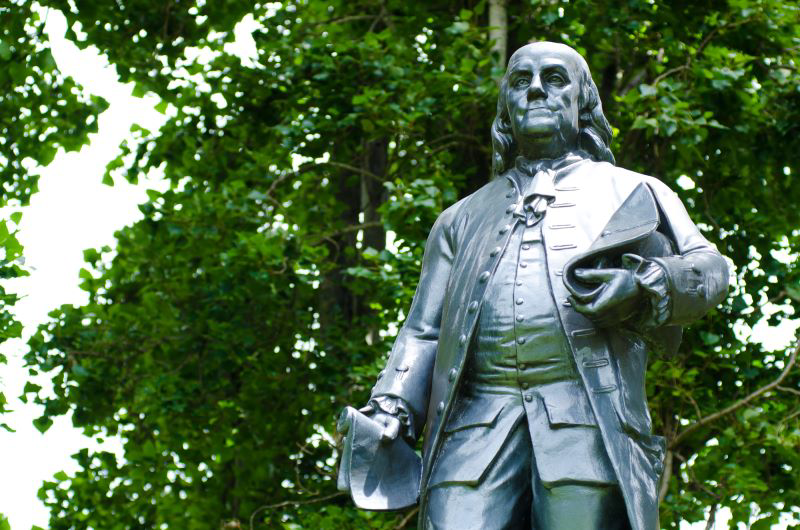Federer on the Founding Fundamentals
Sign up for a six month free
trial of The Stand Magazine!
(Digital Editor's Note: This article was first published in the September 2023 print edition of The Stand.)
“We the People of the United States, in Order to form a more perfect Union, establish Justice, insure domestic Tranquility, provide for the common defense, promote the general Welfare, and secure the Blessings of Liberty to ourselves and our Posterity, do ordain and establish this Constitution for the United States of America.”
Most will recognize the familiar words above as the preamble to the United States Constitution.
Sadly though, the farther removed society becomes from the creation of the document the preamble introduces, the less knowledge people have about the Constitution that governs them.
For example, a 2016 survey conducted by American Council of Trustees and Alumni found that nearly 60% of college graduates could not properly identify the process of ratifying a constitutional amendment, 40% were unaware Congress has the power to declare war, and almost 10% believed that “Judge Judy” sat on the Supreme Court.
In 2018, the Freedom Forum conducted a survey of 1,000 American citizens testing their knowledge of the First Amendment and found only one person who was able to name all five First Amendment rights. In the same study, 40% could not identify a single right guaranteed in the First Amendment.
In recognition of Constitution Day on September 17, The Stand spoke with William J. Federer, historian, speaker, and bestselling author, in an effort to shed some light on America’s governing document.
The Stand: What was the impetus for America’s self-governance?
William Federer: Well, the big picture is that the most common form of government in world history is kings. It’s a hierarchal system where the power is centralized ultimately into the hands of one person.
If you’re friends with the guy on top, you are more equal. If you’re not his friend, you are less equal. And if you’re his enemy, you’re dead. That’s just human nature.
In other words, gangs are the default setting for human government. Put some kids on the playground, one’s the bully. Put some junior high girls in a clique, one’s the diva. Put some people in the woods, one’s the chief. Put them in an inner city, one is the gang leader.
But from the beginning of time, as the centuries go on, weapons improve, and kings can conquer larger areas. Whoever got the next wave of military advancements had a window to conquer. With technological advancements, kings continued to assume more power until finally the king of England became the biggest king on the planet.
So human nature does not change. What changes is the military and technological advancements. But the founders rejected the idea of a king ruling them.
TS: Rather than a king, what did the founders propose?
WF: America’s founders broke away from the most powerful king on the planet, and they flipped it and made the people the king. They created a polarity change in the flow of power. Instead of top down, it was bottom up.
TS: Where did they get that idea?
WF: They got their idea from ancient Israel. Israel’s governance their first 400 years out of Egypt, before King Saul, around 1400 B.C. to around 1000 B.C., was a total anomaly.
God gave them the most unique form of government. Israel had millions of people but no king. Everyone was taught the law, and they were personally accountable to God to follow the law. For people to rule themselves without a king was the complete opposite of human nature. But this system, called the Hebrew Republic, worked for 400 years.
The New England pastors took that idea and made it their community form of government.
TS: But didn’t Great Britain claim the Bible for their authority?
WF: They did, but King Saul was the divider between England and America. The kings of England looked to the Bible for their authority, but they looked to the King Saul period where the king had absolute power.
The Puritans looked to the Bible for their authority, but they looked to the pre-King Saul period, when everyone was taught the law and was accountable to God to follow the law – without a king.
TS: How was America governed before the Constitution went into effect in 1789?
WF: The founders were preoccupied with taking the power of a king and separating it. So the first government in America was the Articles of Confederation. It gave zero power to the federal government. Why? Because their preoccupation was to have no centralized power.
TS: What shortcomings did the Articles of Confederation have that necessitated the U.S. Constitution?
WF: During the Revolution, the Continental Congress had no power to collect taxes; they couldn’t raise funds. They were relying on voluntary contributions from the states, but the states weren’t giving money to the Continental Congress. Thus, they didn’t have any to give to Washington.
They soon realized they needed a defense, a Navy to protect and defend borders, an interchangeable currency between states, the ability to regulate tariffs between states and settle disputes, and other things the current Congress had no authority to do.
They felt the solution was to give a little power to the federal government so the states could work together.
TS: Were there roadblocks to the Constitution’s ratification?
WF: Yes, because some feared it would centralize too much power, the very thing they had fought against.
Patrick Henry feared the Constitution allowed no provision to wage war against the president. He worried the president, as commander in chief, could seize control of the Army, and then no one could fight him.
Henry led the effort of Virginia to not ratify the Constitution. New York sided with Henry, along with a couple of others, such as George Mason, the leader in Virginia.
TS: How did they finally get everyone on board?
WF: James Madison promised that in the first session of Congress, they would essentially put 10 handcuffs on the federal Frankenstein. Those handcuffs are called the Bill of Rights.
When they wrote the Constitution, they realized, to paraphrase James Madison, that “there are no angels on Earth to govern us.” There are only selfish humans, and any human is always going to be tempted to favor his family and friends.
So the idea was to take the power of ruling, break it into three branches, and pit the branches against each other.
TS: How would pitting people against one another contribute to fairness?
WF: Let me illustrate. Imagine a big brownie and three hungry boys, and each has a job. The first boy’s job is to trace out where to cut the brownies. He doesn’t know which piece he’s going to get, so he will try to trace those three pieces exactly equal. The second’s job is to actually cut it, to execute. He doesn’t know which piece he’ll get, so he will try to cut them exactly equal. The third one’s job is to judge and see who gets which piece.
Based on the Constitution, the legislative branch traces and lays out the laws, the executive branch signs and executes the law, and the judicial branch judges the law.
The Constitution provides a means by which selfish, greedy people keep other selfish, greedy people from becoming selfish and greedy. It’s a three-way tug of war.
It was a stroke of genius.
Visit americanminute.com for links to more than 20 books William Federer has authored. See p.2 for related resources from AFA.

Sign up for a free six-month trial of
The Stand Magazine!
Sign up for free to receive notable blogs delivered to your email weekly.


















